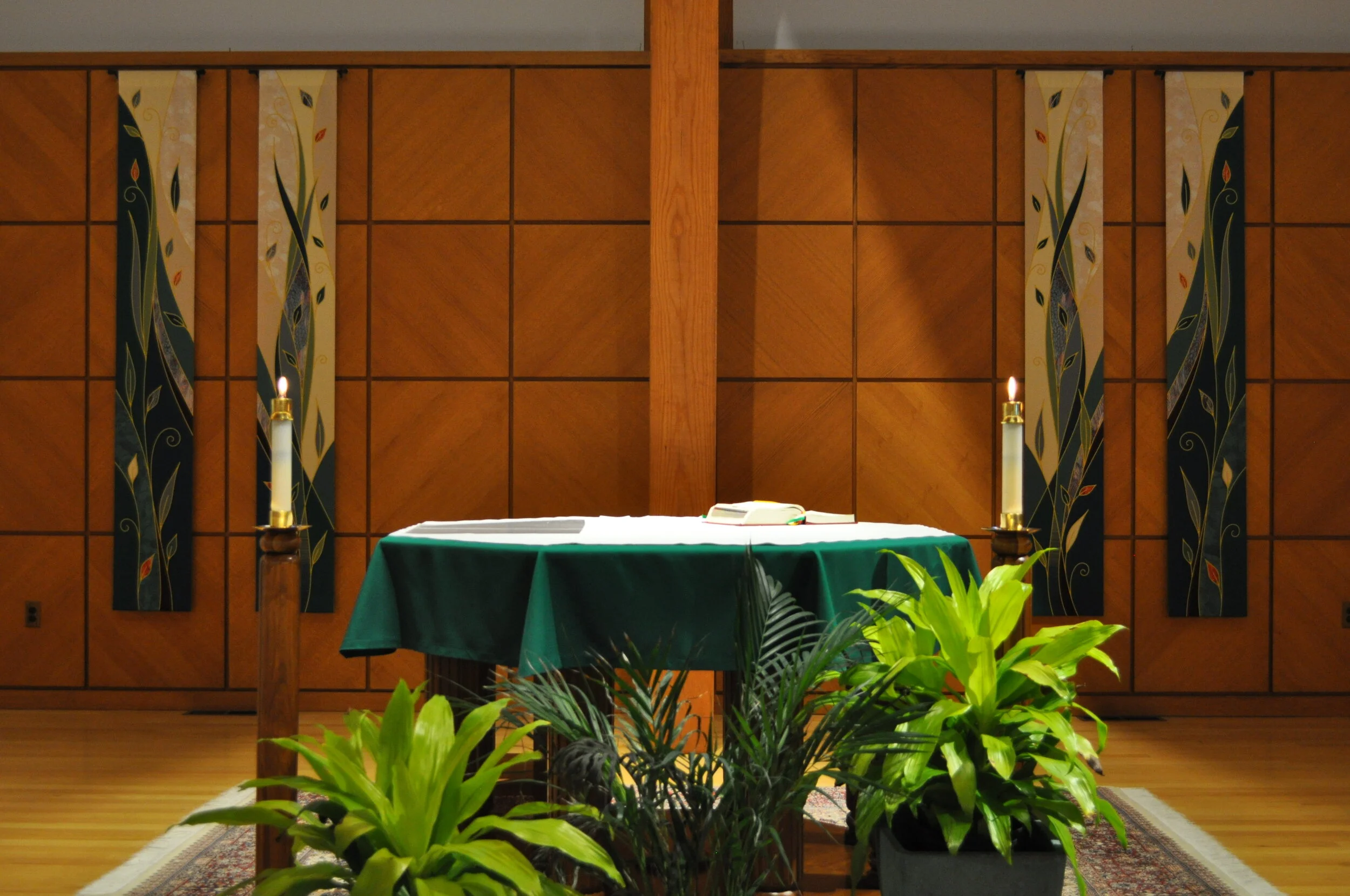
Who am I supposed to listen to?
Week 10: Summary
This week’s edition of Modern Catholic is best viewed as a two-page spread. Click below to view:
I thought I knew which choices were the right ones.
I used to think I knew what it meant to be a good Catholic. Then, I learned about Catholic Social Teaching. I realized there was so much about the Catholic faith that I didn’t know about.
Most importantly, I learned how to be a modern Catholic—to apply the principles of Catholic Social Teaching to the world I live in today.
Catholic Social Teaching has become my compass for being a Catholic in today’s world.
Through Catholic Social Teaching, I learned that God calls us to respect one another’s human dignity—to organize our society so that every person and family is supported, encouraged to grow, and contributes to the common good.
I learned that every person is a welcome participant in society, with human rights and responsibilities that afford them the basic needs of human decency.
I learned that we must put the poor and vulnerable first, and respect and make available meaningful, productive work that recognizes the gift of a day’s labor.
I learned that we are asked to do all of this in solidarity with our fellow children of God across the globe, caring for God’s creation by ensuring its resources are mindfully used and shared by all in a responsible manner, thereby preserving it for generations to come.
The principles of Catholic Social Teaching serve as points on our moral compass, each one guiding our conscience as we strive to live a life of holiness and build a just society. (Resources to provide a fuller understanding of each principle are available at sjfparish.org/mcresources.)
Life and Dignity of the Human Person tells us that all people are sacred.
We are all created in the image of God with inherent dignity. When a person’s dignity is denied, we must act; indifference is not an option.
How can I better respect the dignity of every human being?
Call to Family, Community, and Participation shows us our duty to the common good.
Every person is a child of God. We have an obligation to care for all the people of earth as one family of God.
What can I do to make sure our society benefits everyone?
Rights and Responsibilities helps us understand our responsibilities to each other, and the basic needs of human decency.
All people have a right to a decent life and a responsibility to protect the rights of everyone, especially when those rights are violated.
When I see or hear about the rights of others being violated, how does God expect me to respond?
Option for the Poor and Vulnerable tells us to help the most vulnerable members of our communities.
As Catholics, we have a duty to address the causes of poverty – to ask, “Why does it exist?” and to do something about it.
How can I support and advocate for laws and policies that protect the poor and vulnerable?
The Dignity of Work and the Rights of Workers shows that the economy must serve its people, not the other way around.
People have a right to work, and those that work have rights—including a just wage, adequate benefits, and safe working conditions.
What choices can I make in my day-to-day life that support the rights of workers?
Solidarity teaches us that we are one human family in a global neighborhood pursuing justice and peace.
None of us is an island. We are responsible for each other and must work for justice and peace for all.
What are ways I can show solidarity with people in need, and work for justice both locally and globally?
Care for God's Creation helps us care for God’s gift to us: the earth.
God gave us the responsibility to care for creation. As long as the environment is in danger, so are people’s lives and livelihoods.
What decisions and actions can I take at home and in the workplace that will affect the needs of the poor and of our shared world?
We hope you’ve enjoyed going on this journey with us through the seven principles of Catholic Social Teaching.
Now, we want to hear from you.
Catholic Social Teaching continues to be our compass as we navigate the modern world. Now that we’ve been introduced to each of the seven principles, we must ask, “What now?”
How can we use the seven principles of Catholic Social Teaching to be a modern Catholic?
We encourage you to email us at moderncatholic@sjfparish.org to share how Catholic Social Teaching will influence your daily life. This is your opportunity to enter the conversation! Which principles stood out to you, and why? And, most importantly, what aspects of Catholic Social Teaching would you like to learn more about?
Modern Catholic has been our weekly series exploring the seven principles of Catholic Social Teaching. We’ll be back in early 2021. For now, we wish you a blessed Advent, and encourage you to use this Advent season to reflect and respond. We hope to hear from you via email by December 20, 2020 at moderncatholic@sjfparish.org!
Want to revisit what we’ve learned? All ten weeks of Modern Catholic are available at sjfparish.org/mcarchive.
Just now joining us? Check out previous weeks below:
Want to explore past weeks’ resources?

